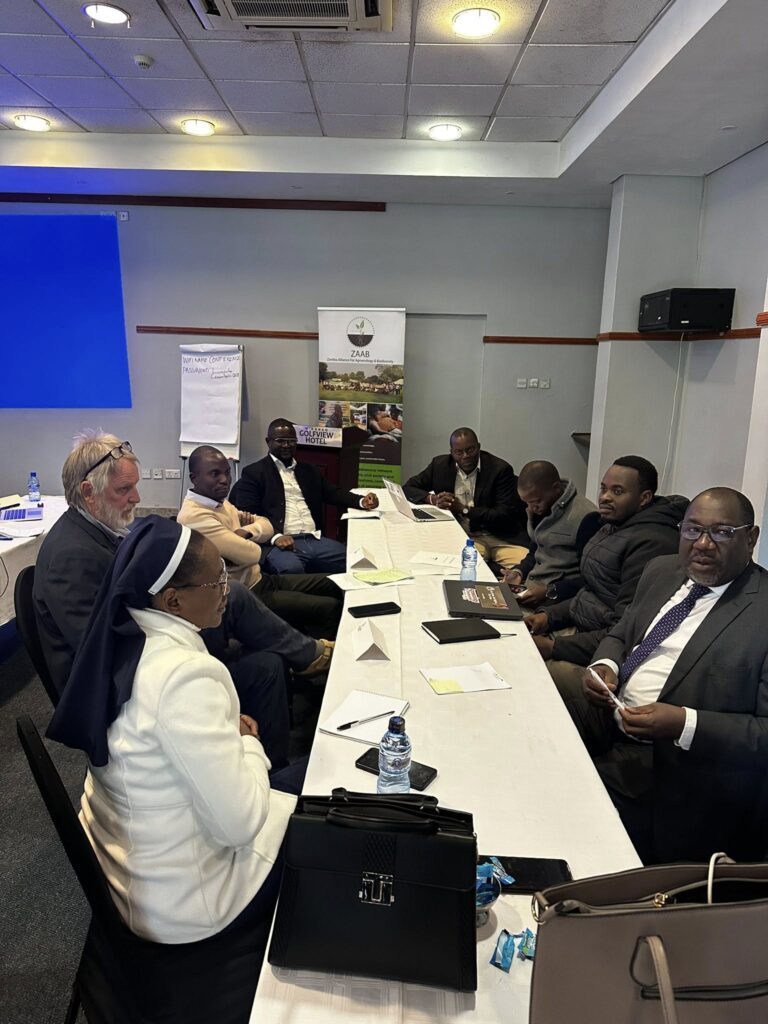Zambia’s Food Advocates Call for Agroecology Shift to Tackle Hunger and Climate Crisis
Zambia’s food security and environmental experts are calling for an urgent national shift toward agroecology and indigenous land-use systems in response to worsening hunger, climate shocks, and the erosion of rural cultural values.
At a food systems dialogue held in Lusaka, hosted by the Zambia Alliance for Agroecology and Biodiversity (ZAAB) in collaboration with the Mbeza Royal Establishment, stakeholders criticized Zambia’s dependence on industrial agriculture. They warned that the current model is failing to nourish communities and protect the environment.
ZAAB National Coordinator Mutinta Nketani said extractive farming practices are not only fueling food insecurity but also dismantling the social and cultural fabric of rural life.
“When a mother stands beside an empty granary and cannot promise porridge to her hungry child, she is not only facing food insecurity. She is calculating whether to sacrifice her dignity,” Nketani said.
She emphasized that traditional fields represent more than food. They are hubs of community, culture, and spirituality. “Our food systems must feed more than bodies. They must also preserve our identity, heal our broken communities, and protect our cultural heritage,” she said.
Citing Zambia’s historical success with communal grazing that sustained millions of wild animals and livestock, Nketani stressed the need for coordinated, ecological land management. “Today, we have fewer animals, but degraded land. That’s a failure of management, not capacity,” she noted.
The dialogue forms part of preparations for the upcoming Ikubi Lya Bana Munyati Traditional Ceremony, scheduled for September 18 to 21, 2025. The event will spotlight sustainable food systems, cultural revival, and agroecological solutions.
Traditional leaders echoed the call for reform. Chief Nalubamba of the Ila people urged a cultural and ecological awakening rooted in ancestral wisdom, community rituals, and local farming knowledge.
“When rains delay and seeds fail, it’s not just hunger. It’s emotional loss,” he said. “Culture begins where the soil brings life. Traditional food is not just eaten. It is shared, honored, and sung into being.”
The chief called for the creation of ancestral field schools, local seed banks, and the integration of storytelling into agricultural education.
Rolf Shenton, environmental advocate and Director of Grassroots Trust, said each farming household can earn ten times more by embracing agroecological methods. He condemned deforestation and poor grazing practices and called for the revival of traditional ecological ethics.
“It was taboo to kill a tree,” Shenton said. “Agroecology and agroforestry were once our way of life long before they were policy terms.”
Speakers urged the Zambian government to involve communities in shaping food policy, protect indigenous knowledge legally, and integrate agroecological principles that center biodiversity, cultural integrity, and sustainable land use.
“Let no child go to sleep with a full belly but an empty heart and uncertain future,” Nketani concluded.



